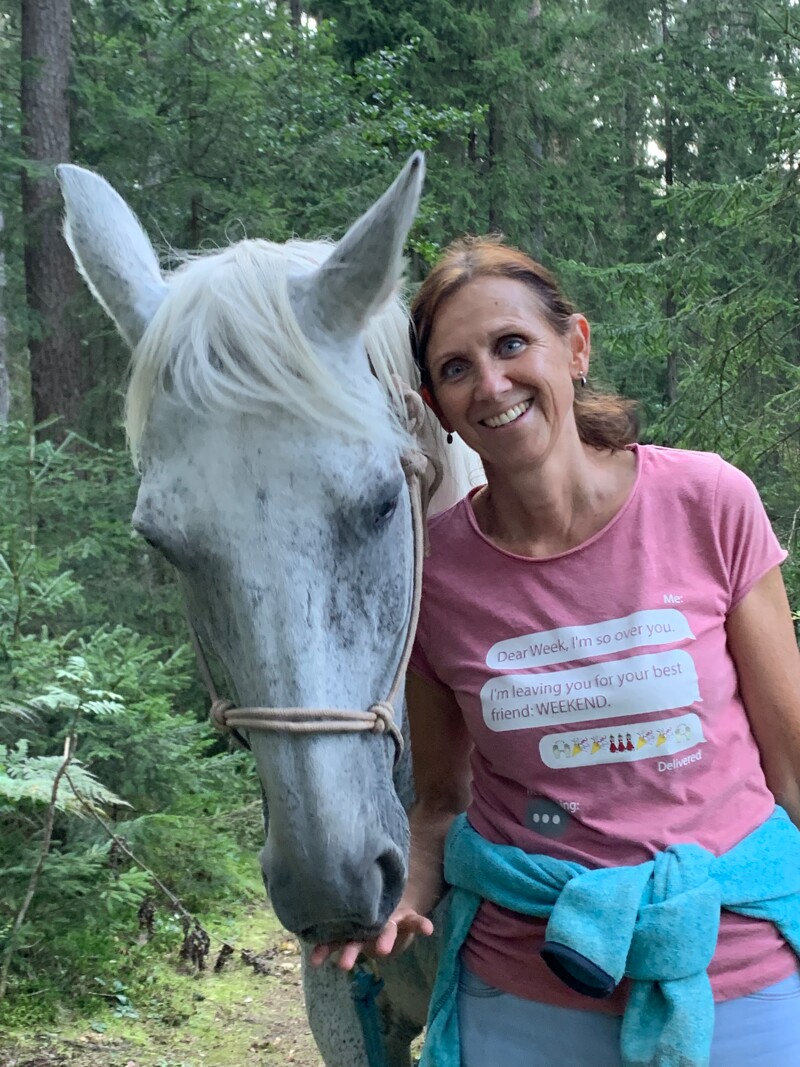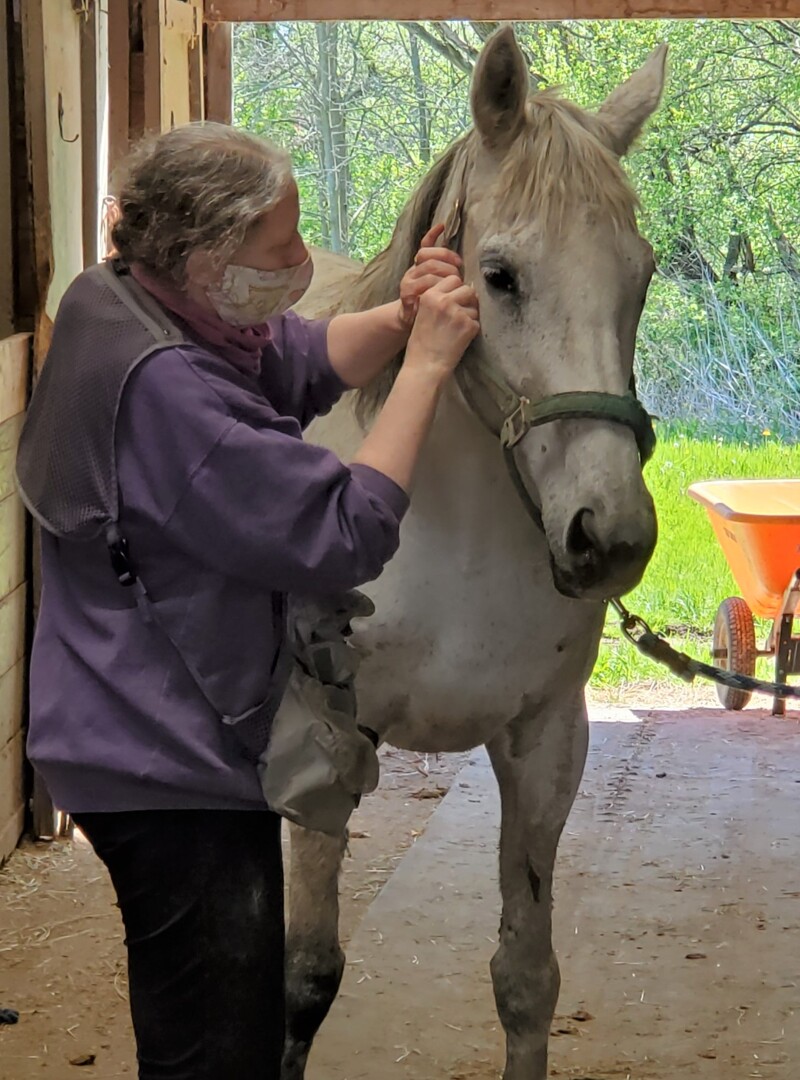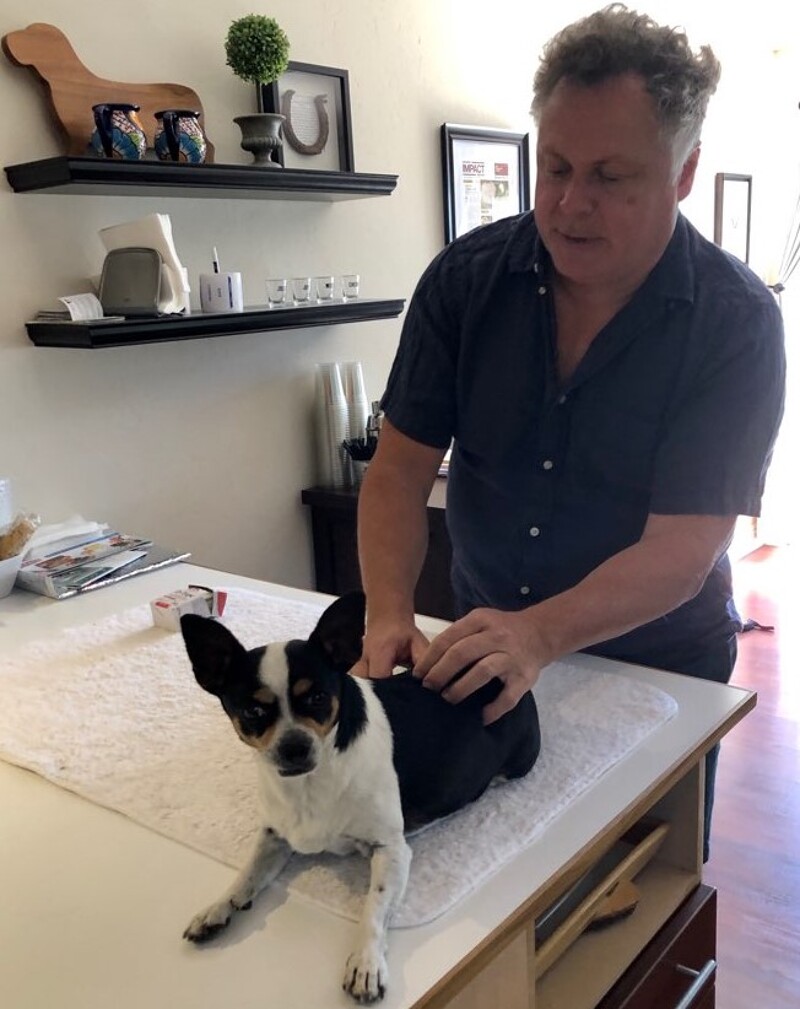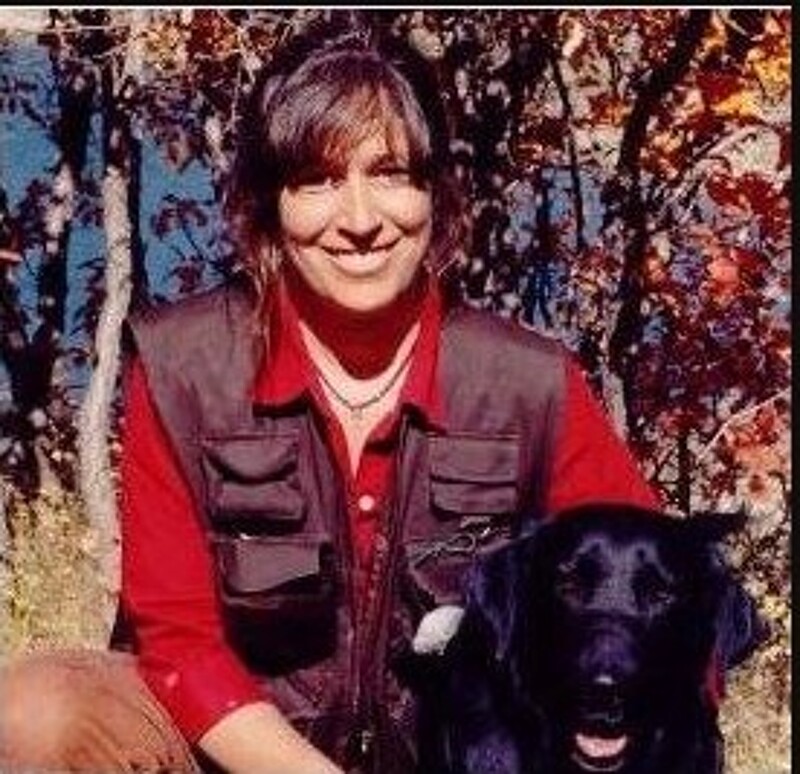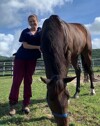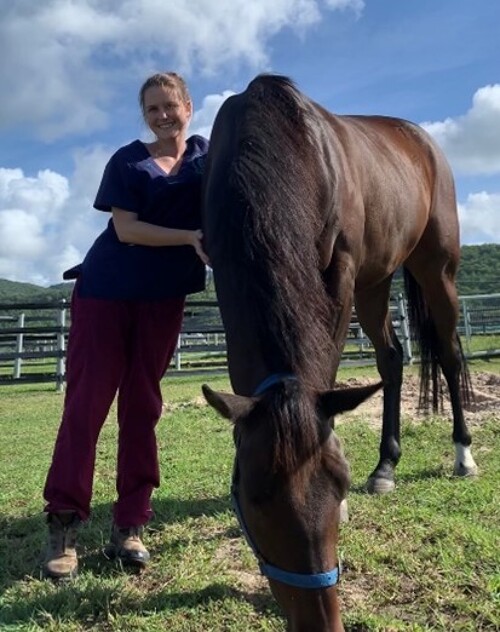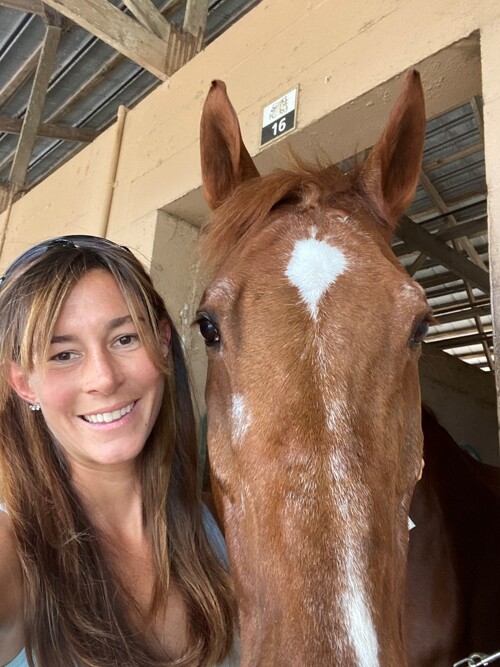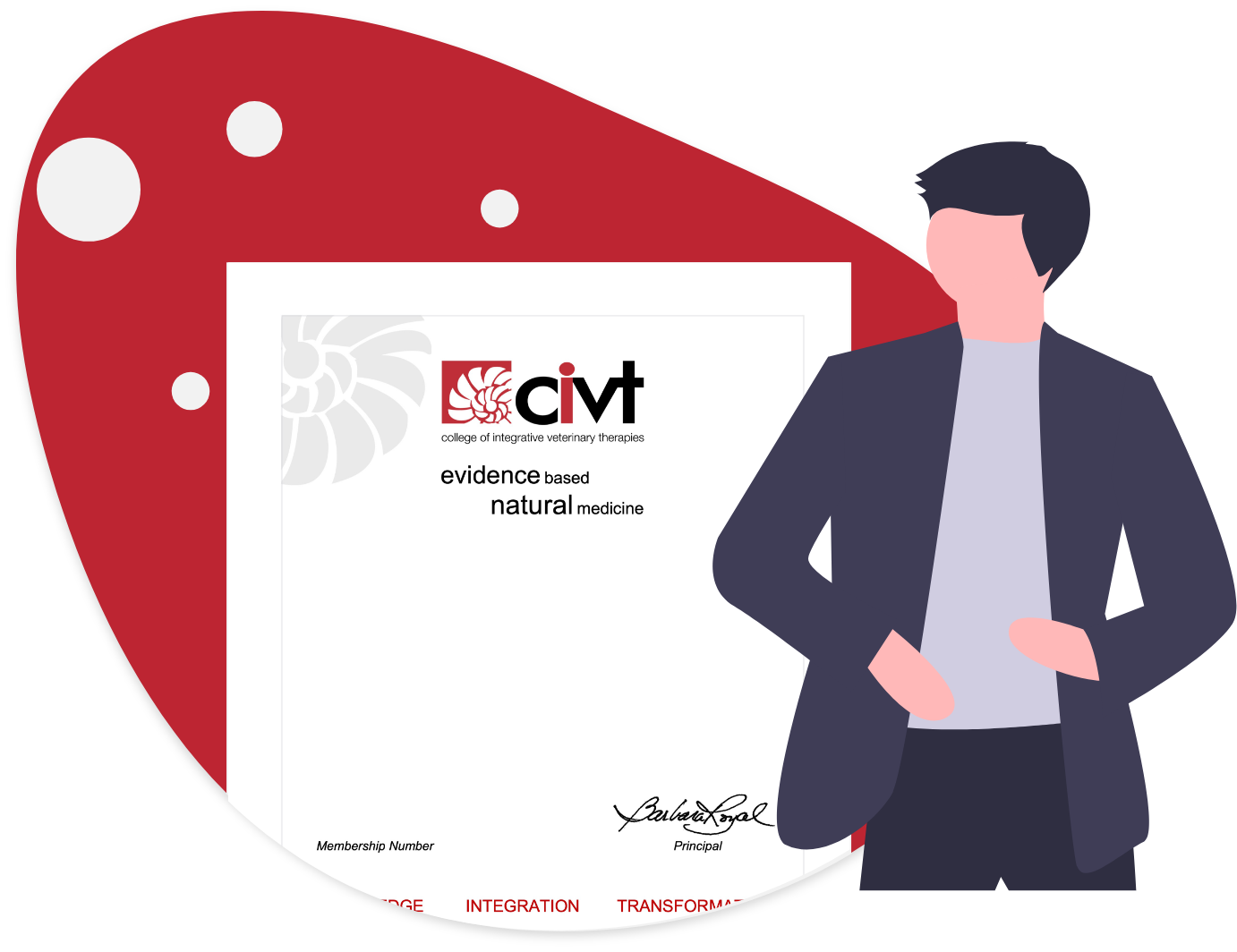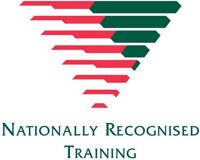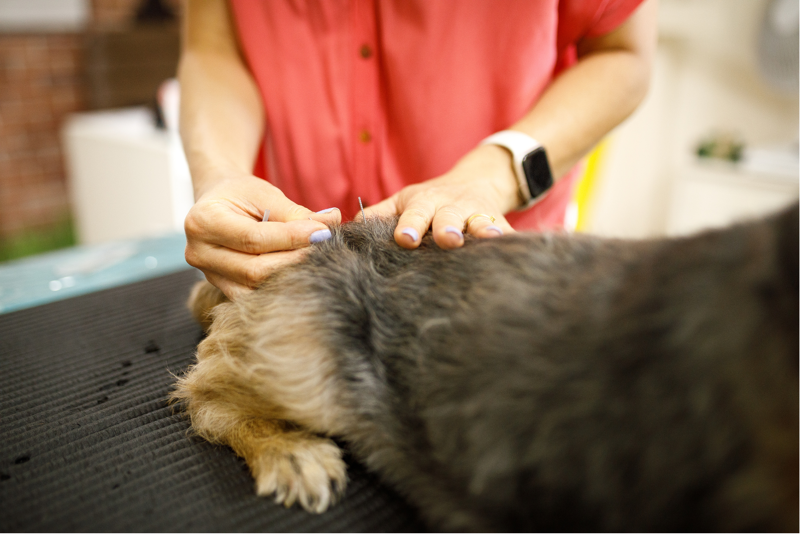Veterinary Chinese Medicine Foundation
The first module covers traditional Chinese medicine designed for application in an animal care context.
Successful completion of these modules equips practitioners working with animals to:
- develop knowledge of traditional Chinese medicine principles
- identify the theories of traditional Chinese medicine practice
- develop knowledge of the cause of disease from a traditional Chinese medicine perspective
- develop a basic knowledge of traditional Chinese medicine anatomy
- identify the basic principles of acupuncture and apply them to veterinary practice
- diagnose clinical conditions seen in veterinary practice from an acupuncture perspective
- identify the central philosophies of acupuncture and Chinese medicine and apply them to veterinary practice
- develop knowledge of Chinese medical pathology
- apply the principles of Chinese medical pathology and pathophysiology within an acupuncture diagnostic framework in veterinary practice
- conduct a veterinary Chinese medicine assessment utilising physical examination, tongue diagnosis and pulse diagnosis techniques
Topics covered:
Health and Harmony according to Chinese Medicine
- Introduction to Philosophies of Chinese Medicine & Concept of Dao/Unity
- Differences between Chinese Medicine and Western Medicine
- Introduction to the History of Veterinary Acupuncture
- Overview of Traditional Chinese Medicine
- Introduction to the Science of Acupuncture
- Concept of Yin and Yang - qualities and interrelationships
- Concept of 5 Elements/ Wu Xing/ Phases - qualities, correspondences and inter-relationships
- Concept of cyclical rhythms in Chinese Medicine (Chinese clock, seasonal and diurnal changes)
- Concepts of Qi, Blood, (Xue), Body fluids Jin Ye qualities, types, production, functions, circulation, inter-relationships
Chinese Medicine Anatomy
- Characteristics and Functions of the 12 Organs/ Zang Fu and extraordinary Fu
- Characteristics and Functions of the Meridians/ Channels/ Jing Luo
Causes of Disharmony Chinese Medicine Health Paradigm and Causes of Disease
- Internal (emotional), External (climatic), Miscellaneous causes
The Diagnostic Framework
- Central Philosophies of Veterinary Acupuncture
- Acupuncture and Veterinary Acupuncture History
- Chinese Medicine Physiology
- Yin and Yang, Zang Fu and Fundamental Substances
- Chinese Medicine Pathology
- Pathophysiology - Patterns of Disharmony according to Chinese Medicine
- Approaches to Chinese Medicine Methods of Diagnosis
- Methods of Examination Tongue diagnosis, Pulse diagnosis, Palpation techniques and other techniques
- Differential Diagnosis
- Diagnosis by Eight Principles
- Diagnosis by Qi, Blood and the Zang Fu
- Diagnosis by the Six meridians, Four phases and San Jiao
- Taking the Case
Veterinary Acupuncture Principles and Practices
Successful completion of module two equips practitioners to:
- apply the central philosophies of acupuncture to veterinary practice
- integrate principles of acupuncture into mainstream veterinary practice
- develop in-depth knowledge of veterinary acupuncture techniques and applications in current veterinary practice
Topics covered:
Neurophysiology of Acupuncture
- Neurophysiology of Acupuncture- How it works
- Modern Acupuncture Theories
- Bridging Science and Acupuncture
Acupuncture points
- Names, classifications, actions and indications of points
Channels and Key Acupuncture Points
- The Channels
- Empirical Points
- Points with Special Actions
Principles of Treatment
- Designing an Acupuncture Point Prescription
- Stimulating Acupuncture Points
- Blood flow- the key to efficacy
- Safety Issues with acupuncture
- Practical aspects of veterinary acupuncture
- Five element acupuncture
Veterinary Acupuncture Treatment Strategies
Modules three and four will develop the skills and knowledge required to administer veterinary acupuncture treatment according to the philosophy and practices of a Chinese medicine therapeutic framework as applied to horses.
Topics include:
- Introduction to TCM and Five Elements in Horses
- Indications and Contraindications for Acupuncture in Horses
- An Overview of Equine Acupuncture Channels
- Lung and Large Intestine Channel Acupuncture Points
- Spleen and Stomach Channel Acupuncture Points
- Bladder and Kidney Channel Acupuncture Points
- Pericardium, Triple Heater, Heart and Small Intestine Channel Acupuncture Points
- Gall Bladder and Liver Channel Acupuncture Points
- Governing Vessel and Conception Vessel Channel Points and extra points
- Diagnostic Acupuncture Point Palpation for Equine Lameness
- Acupuncture for Front Limb Lameness and Laminitis
- Acupuncture for Hind Limb Lameness and Back Pain
- Acupuncture for Equine Cough and Respiratory Disease
- Acupuncture for Equine Cushing's Disease
- Acupuncture for Equine Ophthalmology and Dermatology
- Acupuncture for Equine Gastrointestinal Disease
- Acupuncture for Behavioural Issues
- Acupuncture for Reproduction
 Saint Lucia
Saint Lucia














